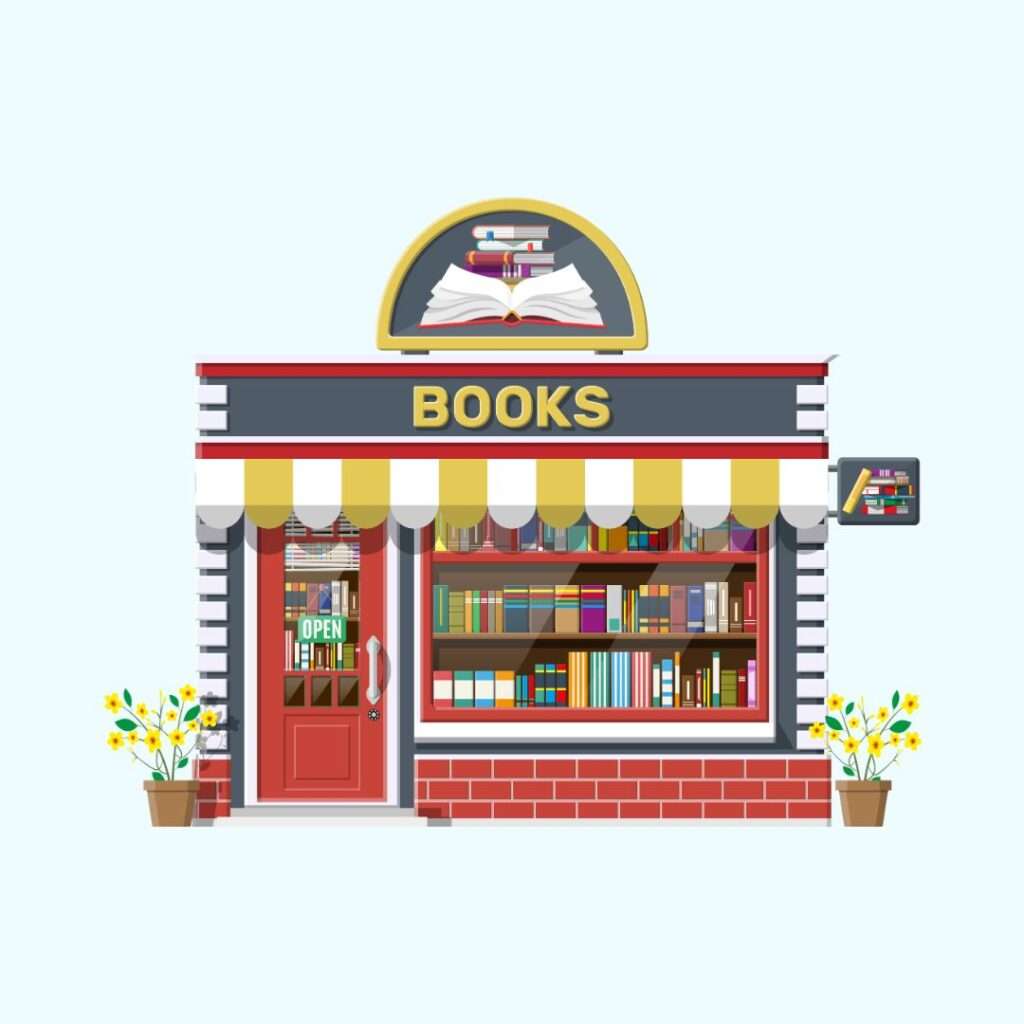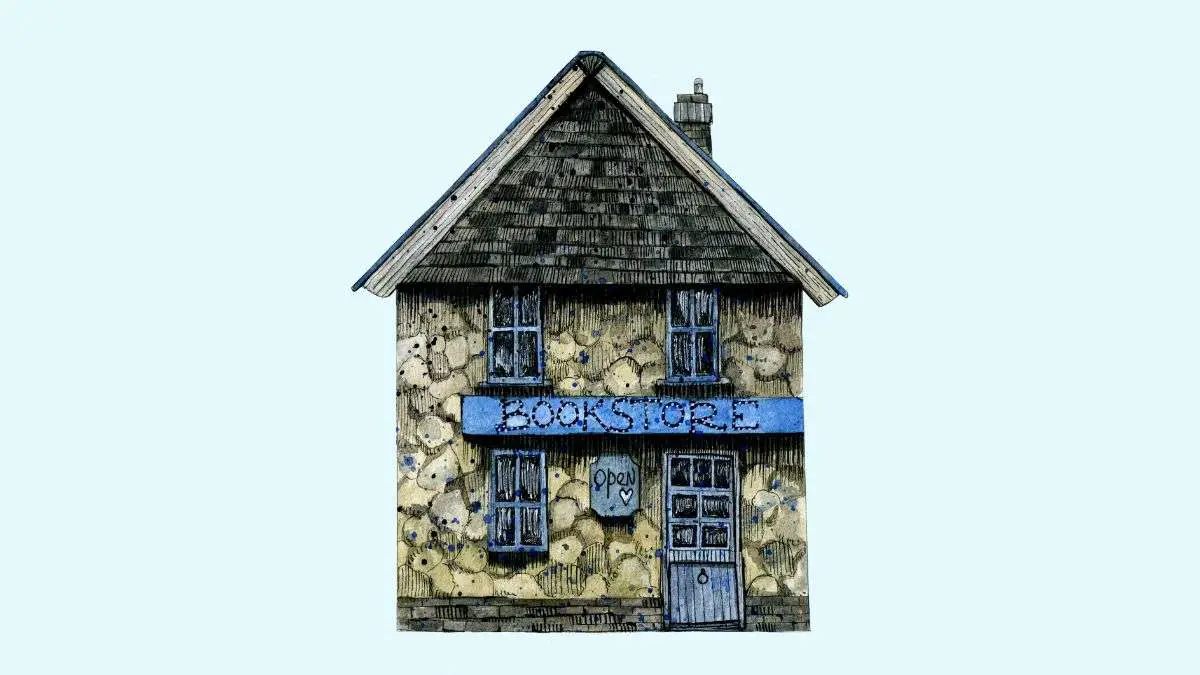Table of Contents
- Introduction
- The Rich History of Bookstores
- Early Bookstores
- Cultural Significance and Community Role of Bookstores
- Evolving Challenges and Opportunities
- Embracing the Literary Legacy Through the History of Bookstores
Introduction
Let’s journey through the fascinating history of bookstores, which have long served as literary sanctuaries for book lovers and knowledge seekers. As we explore these community hubs’ unique charm and cultural significance, we’ll uncover how bookstores have evolved – adapting to societal changes while preserving their role as preservers and disseminators of knowledge.
The Allure of Exploring Stories
There is something special about the experience of browsing the shelves of a cozy, inviting bookstore full of tales waiting to transport our imaginations. Unlike sterile, digital storefronts, physical bookstores offer a sensory experience – the smell of paper and ink, the feel of a book in our hands, the ability to explore and make serendipitous discoveries. Book lovers have found sanctuary among the stacks for centuries, escaping into other worlds.
Hubs of Intellectual Exchange
Beyond being sellers of stories, bookstores have long served as hubs of intellectual exchange and community engagement. Historically, bookstores were gathering places for thinkers, writers, and readers – fertile ground for fostering literary culture and movements. Today, independent bookstores promote local authors, host readings and events, and preserve a diversity of perspectives. More than just shops, they help build a sense of belonging.
Adapting While Preserving Tradition
The history of bookselling has been one of continual evolution and adaptation – from ancient libraries to codex books to the digital age. While facing new economic pressures and competition, many cherished bookstores preserve their original charm and role as sanctuaries. Through personalized service, creating engaging experiences, and leveraging technology, they have found innovative ways to stay relevant while championing the enduring power of the printed word.
The Rich History of Bookstores
The rich and fascinating history of bookstores is pivotal in preserving and spreading knowledge since ancient times. Before the Greek and Roman empires, vendors sold scrolls containing philosophy, poetry, and religious texts in public marketplaces. These scroll sellers were among the first to make written works available to ordinary people.
In the Middle Ages, monasteries became the main centers of book production, storing and copying precious manuscripts by hand. As literacy spread in the 15th century, stationary bookshops emerged, selling books, paper, and writing implements. Many bookstores doubled as printing shops or publishing houses. The spread of the printing press allowed books to be mass-produced for the first time, making them more affordable and accessible.
Over the centuries, bookstores continually adapted to societal and technological shifts. In the 19th century, increased literacy and leisure time made books popular entertainment, leading to larger commercial bookshops. Many independent bookstores nurtured local literary communities by hosting author events and discussion groups.
In the 20th century, chain book superstores offered discounts and huge inventories. Recently, online bookselling has emerged as a major force, challenging traditional bookstores. Yet many independent stores continue thriving through specialization, personal service, and creating a communal hub for book lovers.
Iconic bookstores like Shakespeare and Company in Paris promoted many avant-garde writers. San Francisco’s City Lights Bookstore published key Beat Generation writers like Allen Ginsberg. The Strand Bookstore in New York City, now 92 years old, influenced generations of readers and writers with its staggering “18 Miles of Books.”
These and other storied bookshops demonstrate how bookstores have long nurtured literary movements, facilitated intellectual discussion, and connected readers to life-changing works. Even in today’s digital era, these havens for book lovers continue inspiring new generations of readers and writers.
Early Bookstores
As we understand them today, the earliest bookstores originated in the ancient world. A need emerged to distribute these documents after the development of writing and the inception of written records. This was long before Johannes Gutenberg invented the printing press in the 15th century, revolutionizing the production and dissemination of books.
In ancient Greece and Rome, books were typically scrolls made from papyrus or parchment. These were often sold in the agora or forum, central public spaces where merchants and tradespeople conducted business. The scrolls contained a variety of texts, including literature, philosophy, and legal codes. Some of the earliest known commercial transactions involving books took place in these marketplaces.
As we move into the Middle Ages, the nature of bookstores changed with the times. Books were rare and precious objects, primarily because they had to be copied by hand, a labor-intensive process usually undertaken by monks in monasteries. With the rise of universities in the 12th and 13th centuries, the demand for books increased, leading to the emergence of stationery shops, which were bookstores that also dealt in the copying and sale of academic texts. These shops were often located near universities, serving scholars and students.
During the Renaissance, the spread of the printing press allowed for the mass production of books, which led to the proliferation of bookstores. These bookstores were no longer where books were sold; they often functioned as printers and publishers. The Stationers’ Company in London, established in 1557, is a notable example of a guild that regulated the book trade; its members were booksellers, bookbinders, printers, and publishers.
One of the most famous early bookstores was the Moravian bookstore in Bethlehem, Pennsylvania, founded in 1745. It claims to be the oldest continuously operating bookstore in the world. Another example is the Bertrand Bookstore in Lisbon, Portugal, which opened in 1732 and is recognized by the Guinness World Records as the world’s oldest operating bookstore.
These early bookstores played a crucial role in the intellectual life of their communities. They were centers for exchanging ideas and facilitated the spread of knowledge through the written word. As the number of literate people grew and the cost of books decreased, bookstores became more widespread and accessible, laying the groundwork for the rich literary culture we enjoy today.
Cultural Significance and Community Role of Bookstores
Bookstores have long served as vital community hubs that foster meaningful connections and promote the exchange of ideas. More than just stores, they are cultural institutions that anchor neighborhoods and bring people together around a shared love of books and passion for knowledge.
Bringing People Together Around Books
Unlike large chain retailers, local bookstores often become communal spaces where book lovers gather to browse, converse, and attend readings and events. Their cozy atmospheres and knowledgeable staff help cultivate a sense of belonging among customers with everyday intellectual curiosities and appreciation for the written word.
Independent bookstores strengthen the fabric of local literary culture by providing space for these social interactions. They nurture relationships among readers and writers, sparking vibrant discussions from which great art and literature emerge.
Supporting Local Literary Culture
Bookstores promote local literary talent by hosting author events, book clubs, poetry readings, writing workshops, and more. These activities spotlight regional writers and offer platforms for emerging voices to find new audiences within their communities.
Many stores also opt to display books by local authors prominently. This visibility bolsters the careers of writers in the area and demonstrates the bookstore’s commitment to championing the work of talented community wordsmiths.
Preserving Diverse Perspectives
Unlike large online retailers prioritizing mass-market bestsellers, independent bookstores can tailor their inventory to match their neighborhood’s residents’ tastes and sensibilities.
By curating titles that reflect the diversity of thought and experience within their community, local booksellers preserve access to a broader variety of stories and ideas. This sustains a healthy intellectual ecosystem where all creative works can flourish.
Evolving Challenges and Opportunities
Traditional bookstores face immense challenges in the digital age with the rise of online retail giants like Amazon. Many book buyers have shifted to purchasing print and ebooks online for convenience and competitive pricing. This has led to declining foot traffic and sales for physical bookstores, forcing many beloved community mainstays to shut down.
In addition to online competition, traditional bookstores struggle with high operating costs related to retail space and staffing. They also have difficulty competing on price due to the discounts and efficiencies of large online sellers. Some bookstores have adapted by offering used and bargain books, but many find it impossible to match the selection and prices customers find online.
Forward-thinking independent bookstores are employing creative approaches to bring in customers and strengthen community ties:
- Hosting author events, discussion groups, writing workshops, book clubs, storytimes, and other in-store gatherings to foster literary community.
- Offering quirky, customized spaces for reading, working, or simply hanging out to encourage patronage.
- Selling local consignments, partnering with neighborhood businesses, and promoting local authors to boost community spirit.
- Building robust e-commerce sites with online ordering and subscription book services as complements to the in-store experience.
The most resilient bookstores strike a balance between tradition and innovation. They deliver the nostalgic warmth and curated selections patrons love while modernizing operations. Tactics like integrating technology to manage inventory or build customer loyalty programs help bookstores compete on their terms in the digital marketplace.
The future remains uncertain, but independent bookstores can continue serving their communities for generations by highlighting their roles as cultural centers, the rich history of bookstores, and their role as safe havens for bibliophiles.
Embracing the Literary Legacy Through the History of Bookstores
As we conclude our journey through the history of bookstores, it is clear these unique spaces have an enduring allure. Besides stores, bookstores have long served as sanctuaries – havens for exploration, discovery, and community. Stepping into a cozy, quaint bookshop, the smell of printed pages wafting through the air, it’s easy to feel transported to another world entirely. Here, book lovers have gathered for generations, perusing shelves, getting lost in stories, and connecting over a shared appreciation of literature.
Indeed, the magic of bookstores lies in their ability to facilitate literary exploration, sparking curiosity and intellectual growth. Spending an afternoon browsing in a bookstore invites adventure – you never know what new author, genre, or subject you might discover. Bookstores also build community, bringing fellow book enthusiasts together and fostering meaningful exchanges. Whether through author events, reading groups, or casual cafe chatter, these spaces cultivate a sense of belonging.

As we’ve traced the evolution of bookstores, they have made an invaluable cultural impact, preserving and spreading knowledge, spearheading movements, and giving diverse voices a platform. They are keepers of history and champions of literary culture. This is why it is so vital that we continue to support these small businesses, which often struggle to compete against giant retailers. By shopping at our neighborhood bookshops, engaging with their offerings, and appreciating their legacy, we ensure these sanctuaries thrive for generations.
Celebrating the Abundant History of Bookstores and the Enduring Power of Printed Literature
Even in our increasingly digital era, the allure of printed books and the bookstores that sell them shows no signs of fading. So let this be a call to action: continue seeking out your local book havens, get lost wandering their shelves, attend author events, chat with fellow readers, and fully engage with the literary culture bookstores offer. Join the movement to uphold bookstores so they can keep sparking curiosity, fostering community, and preserving the timeless magic of printed pages for years to come. If we support them, these abundant sanctuaries and the stories they hold will endure.
